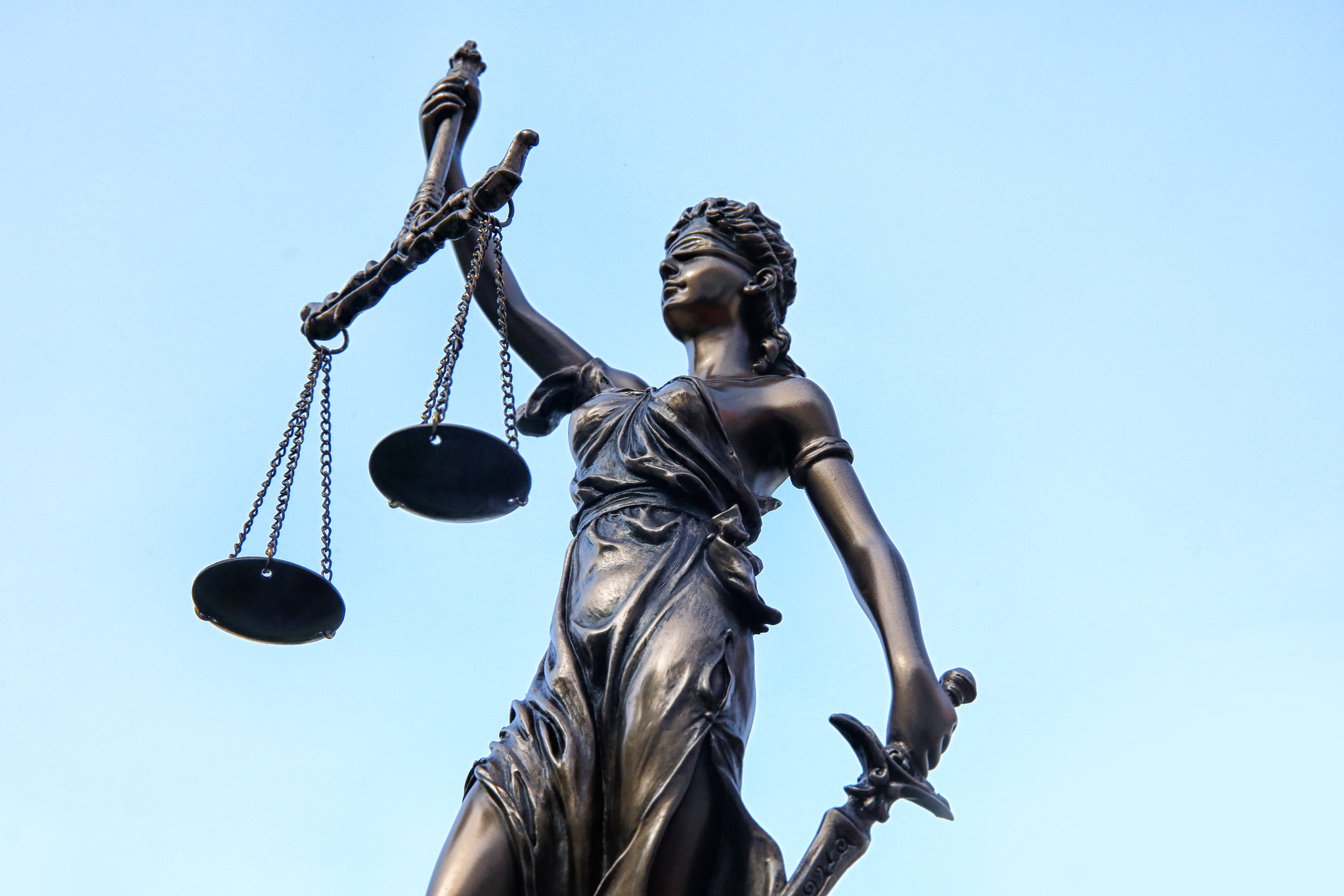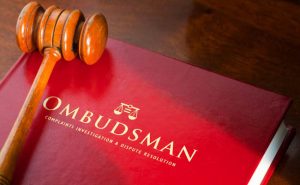Table of Contents
Introduction
The principles of natural justice are deep rooted in the tradition and judicial conscience of every person in the society. These principles are considered so fundamental that they are implicit in the concept of ordered liberty and, therefore, implicit in every decision making function, whether it is judicial, quasi judicial or administrative. The concept of natural justice is manifested in the twin principles of ‘Nemo Judex In Causa Sua’ and ‘Audi Alteram Partem’.
Meaning Of Natural Justice
A complete definition of natural justice is yet to be developed. It has been variously interpreted by different Judges as , ‘Universal Justice’, ‘Fundamental Justice’, ‘A Fair Crack Of The Whip’, ‘Rational Justice’, and ‘Fair-Play In Action’ etc. The very basic thing which is common from all the above meanings is “Fairness in the Administration Of Justice”.
Amalgamating the above interpretations Justice Bhagwati says, “Natural Justice is a great humanizing principle intended to invest law with fairness and to secure justice and every year it has grown into a widely pervasive rule affecting large areas of administrative action. Thus the soul of natural justice is fair play in action and that is why it has received the widest recognition throughout the democratic world.”
To put it more simply, we can say that, the doctrine of natural justice involves a set of rules which mandates the adjudicator, or the administrator to observe the procedural fairness and propriety in holding and conducting trial, inquiry or investigation or other types of proceedings or process.
Short History On Natural Justice
The concept of natural justice can be traced from the Biblical Garden of Eden, as also from Greek, Roman and other ancient cultures like Hindu. The Vedic Indians were also familiar with the natural theory of law. During the Middle Ages, the Christian legal philosophy considered natural law principles not to be based on reasons, instead were the reflection of eternal laws. In the seventeenth and eighteenth century, the authority of church was challenged and natural law was based on reason and not divine force.
According to the Bible, when Adam & Eve ate the fruit of knowledge, which was forbidden by God, the latter did not pass sentence on Adam before he was called upon to defend himself. The same thing was repeated in the case of Eve. This is evident from the following text from the bible which says:
“Even God did not pass a sentence upon Adam, before he was called upon to make his defense. “Adam”says God, “where art thou? hast thou not eaten of the tree whereof I commanded thee that thou shouldest not eat”.
Natural Justice In Ancient India
The traces of application of ‘Dharma’ and ‘Natural Justice’ can be found in the Criminal Justice System of Ancient India. Principles of Natural Justice are not new to Indian society, procedural fairness has always been a part of our cultural heritage. It has always been implemented while carrying out judicial or administrative functions affecting the rights, duties, immunities and privileges of people. The following facts states the usage of natural justice principles in delivery justice in ancient India:
Independence & Impartiality Of Judiciary
The judges and counselors guiding the king during the trial of a case were needed to be independent and dauntless and prevent him from committing any error or injustice. According to KATYAYANA, “If the king wanted to impose upon the parties an illegal or unrighteous decision, it was the duty of the judge (samya) to advise the king and prevent him.”
Application Of Rule Against Bias
The king was required to follow the Rules of Dharma, and he must be above worldly attachments while deciding the cases. Hon’ble Justice S.S. Dhavan gives following examples to substantiate this, Rama, the King of Ayodhya, was compelled to banish his queen, simply because his subjects disapproved of his having taken back a wife who had spent a year in the house of her abductor. The king submitted to the will of the people though it broke his heart.
Fairness In Trail Procedure
The king and his counselors followed the principle of Justice, Equity and good conscience while deciding a matter. Proper procedures were followed giving the sufficient opportunity of being heard, summons were send by the court against whom the case was filed and representations were also allowed in case the people were engaged in work.
However, according Mitakashara & Yajanvalkay Smriti, in serious matters like Murder, Theft, Rape and Adultery no representations were allowed.
Representations By Lawyer
The commentaries of Narada, Brihaspati, Asahaya and Katyayana Smriti indicate that help of litigants who were well versed in the Smriti Literatures, was allowed by the court. The people could seek the help of legal practitioners for some monetary compensation, which was also fixed by the king. the
Thus, it is evident that the principles of natural justice were prevalent in India and were practiced quite earlier than Rome and Greek.
Principles Of Natural Justice In Administrative Law
The principles of natural justice are not codified canons, these are conceived as concomitant of universal natural laws, and they do not derive their powers from any statute. In the realm of Administrative Law, natural justice plays a vital role in ensuring justice and transparency in decision making. The three major principles of natural justice are as follows:
- Nemo Judex In Causa Sua
- Adi Alteram Partem
- Reasoned Decision
Nemo Judex In Causa Sua
It is popularly known as the rule against Bias, and states that ‘No Man Shall Be A Judge In His Own Case’ and ‘Justice should not only be done, but manifestly and undoubtedly be seen to be done’. In this connection the Supreme Court also pointed out that, ‘It is the minimal requirement of natural justice, that the administrative authority giving decisions must be composed of impartial persons acting fairly, without prejudice and Bias’.
Doctrine Of Bias
According to the ‘Lectric Law Library’s Lexicon, “Any mental condition that would prevent a judge or juror from being fair and impartial is called Bias. Rule of Bias is a principle of judicial conduct which is imposed strictly on the administrative authorities exercising judicial or quasi-judicial functions. Thus, no tribunal can be Judge in his own case and any person, who is in the position of passing judgment over the rights of others, should be free from any kind of bias and must be able to bear an impartial approach to the question in controversy.
Bias is classified into 3 types namely:
- Pecuniary Bias– In the landmark V.C. Dime Case, where Lord Chancellor passed the decision against appellant due to having pecuniary interest in the Respondent’s company. Later House Of Lords rescinded the decision and held that ‘No matter how small or insignificant the interest is, it will be considered as a valid ground for reversing the Judgment.’
The Indian Courts have reiterated the same approach in Vassilliadas Case, and held that ‘Any amount of pecuniary interest, however insignificant, will be a valid ground of Bias and will render the judge incapable of giving judgment.’
- Personal Bias- It has always been a matter of judicial interpretation, as there is no straitjacket formula for determining Personal Bias. Due to the growing interdependability of human relations, cases of personal bias favoring one or the other party, have grown tremendously.
Personal Bias arises when the deciding authority is in cahoots with the party, and passes judgment in his favor. Such irregularity arises:
- When the presiding officer has formed the opinion without finally completing the proceeding.
- When he is interested in one of the parties either directly or indirectly as being related to one of the parties.
All such situations create bias either in favor of or against the party and
will operate as a disqualification for a person to act as a Judge.
- Bias as to subject matter- “A legal interest means that the Judge is in such a position having some direct connection with the subject matter of the case, then bias must be assumed.”
Thus for example, members of a legal or other body, who had taken part in promulgating an order or regulation cannot afterwards sit for adjudication of a matter arising out of such order because they will be disqualified on the ground of bias.
Test For Determining Bias In The Case
In the case of determining Bias, proving actual bias is not necessary. Test of a reasonably prudent man is required to prove that there was “real likelihood” of bias. According to Prof. M.P. Jain, ‘Bias being a mental condition there are serious difficulties in the path of proving on a balance of probabilities that a person required to act judicially was in fact biased.’
Bias is the result of an attitude of mind leading to a predisposition towards an issue. Bias may arise unconsciously. It is not necessary to prove the existence of bias. In fact, it is important to observe the matter through the eyes of a reasonably prudent person. Further, justice should not only be done but seem to be done. Therefore, the existence of actual bias is irrelevant. What is relevant is the impression which a reasonable man has of the administration of justice.
Audi Alteram Partem
An important concept in Administrative law is that of ‘Audi Alteram Partem’ or ‘Right To Fair Hearing’. This principle states that no party should be condemned unheard, and both the parties must be given equal opportunities to present their case before the adjudicating officer. This rule also implies that a person against whom an order to his prejudice is passed should be given information as to the charges against him, and should be given the opportunity to submit his explanation thereto.
Ingredients Of Fair Hearing
- Notice– Serving notice is considered as the starting point of hearing. It makes the opposite party aware about the charges against him so that he can defend himself. Also, the notice must be served in reasonable time and the contents must be clear and unambiguous. Starting the case proceedings without serving the notice upon the opposite party would violate the Principles Of Natural Justice.
In the case of Kanda vs. Government of Malaya, the court held that notice must directly and clearly specify on the matter of bias, facts and circumstances against which needs to be taken.
In Appropriate Authority vs. Vijay Kumar, Where the material on the basis of which compulsory purchase of property by the Income Tax Department was not disclosed in the show cause notice and the venue of hearing was changed without giving reasonable time to the transferor to reach the venue, Supreme Court held that there is violation of natural justice.
- Receiving all relevant materials– A hearing is to be treated as a fair hearing, when the adjudicating authority receives all the relevant material produced by the individual. If the adjudicating authority does not allow the person affected to produce material evidence, such refusal will be violative of the rule of fair hearing.
- Right To Present Case- An Integral part of Audi Alteram Partem is that, the parties must be given sufficient opportunities to present their case either orally or in writing at the discretion of the authority unless the statute provides otherwise.
In the case of S. L. Kapoor vs Jagmohan: It was held that the opportunity need not be a ‘double opportunity’ – one on the allegations and the other on penalty.
- Right to Rebut Adverse Evidence
It is one of the basic rights which the party in a case is given to challenge any evidence and confront the documents submitted against him. It presumes the fact that the adverse evidence is revealed to the party. If it’s not revealed to the party, the party is naturally denied the right to rebut that evidence.
- Disclosure Of Evidence– It is the general principle that all the evidence which the authority wishes to use against the party, should be placed before the party for his comment and rebuttal. If the evidence is used without disclosing it to the affected party, it will be against the rule of fair hearing.
- Cross Examination- Right of fair hearing includes the right to cross examine the statement made by the opposite party. Denial of this right will violate the principles of natural justice leading to the failure of Fair Hearing.
In the State of Kerala vs. Shduli Grocery Dealer, “It was held that the denial of the dealer’s request to cross examine the sales tax authorities who had given evidence against him was denial of natural justice.”
In S. C. Girotra vs. United Commercial Bank, ‘Where the witnesses have orally deposed, refusal to allow cross examination would necessarily amount to denial of natural justice.’
Post Decisional Hearing
It simply means hearing done after the decision. In certain situations where prior hearing is dispensed on the ground of public interest, expediency or emergency, the Supreme Court insists on the post- decisional hearing. It is clear that if prior hearing is required to be given as part of the rule of natural justice, then failure to give it will invalidate the exercise of power.
In normal cases pre-decisional hearing is considered necessary, however in exceptional cases, the absence of the provision for pre decisional hearing does not vitiate the action if there is a provision for post decisional hearing. In Charan Lal Sahu V. Union of India, the Supreme Court has held that, “If the statute is silent with regard to the giving of a pre-decisional hearing, then the administrative action after the post decisional hearing will be valid.”
Reasoned Order
Another important principle of natural justice is that the judgment passed must be fair and be based upon reasons. Passing any judgment without giving any reason is same as a “Lamp Without Oil”. Thus, when adjudicating bodies give reasons in support of their decision, such decisions are treated as reasoned decisions. It is also called Speaking Order.
Even where the statute or the Rules do not specifically require giving of reasons, the courts may still require that reasons must be given for the order in view of the constitutional and statutory provisions which imply such a requirement.
The right to reasons is an indispensable part of judicial review and the party is entitled to know the reason for the decision apart from the decision itself. The reasons should be such as to show application of mind by the authority to the facts of the case and rationale behind making the order in the way it is made. It cannot be a mechanical ‘rubber stamp reason’ and the party must be able to understand the logic behind making such an order.
In the case of M. J. Sivani vs. State of Karnataka, Supreme Court held that where the relevant Rules require giving of reasons, it is sine qua non for the validity of the order.
In Maneka Gandhi vs. Union of India, It was held that any law which allows any administrative authority to take a decision affecting the rights of the people without assigning any reason cannot be accepted as laying down a procedure which is fair, just and reasonable, and hence would be violative of arts. 14 and 21.
Similarly, in Harinagar Sugar Mills Ltd. vs. Shyam Sundar, it was held that, ‘Where one authority makes an order giving sufficient reasons and another authority after examination of that order confirms it, that other authority need not give any reasons.’
Thus, the giving of reasons in support of the decision is now considered one of the fundamentals of good administration because it gives satisfaction to the person against whom the decision has been given, and introduces fairness in the administrative powers by minimizing arbitrariness.
When does it become necessary to invoke the principle of natural justice?
By Order Of Statute
No wider right than that provided by statute can be claimed nor can the right be narrowed. Where authority functions under a statute and the statute provides for the observance of the principles of natural justice in a particular manner, natural justice will have to be observed in that manner and in no other.
If the statute is silent about the observance of the principles of natural justice, such statutory silence is taken to imply compliance with the principles of natural justice. The implication of natural justice being presumptive may be excluded by express words of statute or by necessary intendment. Where the conflict is between the public interest and the private interest, the presumption must necessarily be weak and may, therefore, be readily displaced. The presumption is also weak in cases of mere property rights.
In cases of urgency, particularly where the public interest is involved, pre- emptive action may be a strategic necessity. There may then be no question of observing natural justice. Even in cases of preemptive action. if the statute so provides or if the Courts so deem fit in appropriate cases, a postponed hearing may be substituted for natural justice. Where natural justice is implied, the extent of the implication and the nature of the hearing must vary with the statute, the subject and the situation.
When Judge Finds It Necessary
The question of the applicability of the principles of natural justice is generally traceable to the readiness of judges to apply the principles of natural justice where no question of the public interest is involved, particularly where rights and interests other than property rights and vested interests are involved and the reluctance of judges to apply the principles of natural justice, where there is suspicion of public mischief and only property rights and vested interests are involved.
Conclusion
Law is the means and Justice is the end. Law may be substantive as well as procedural. Similarly, Natural Justice also aims at Justice. It, however, concerns itself only with the procedure. It seeks to secure justice by ensuring procedural fairness. Failure to comply with the principles of natural justice renders the decision or order void.



